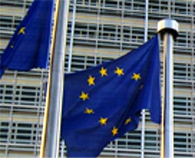The Council of the European Union on June 24 adopted a “ground-breaking” global policy "to promote and protect the enjoyment of all human rights by lesbian, gay, bisexual, transgender and intersex (LGBTI) persons."

The European Parliament's Intergroup on LGBT Rights described the new document as being “binding” on the Council of the European Union which represents the 27 national governments in the Union. The new policy is said to be a step up from the non-binding toolkit to promote LGBT people’s human rights which was adopted by the EU in June 2010.
The binding LGBTI Guidelines are centred on four priorities, the European Parliament’s Intergroup on LGBT Rights said:
. Eliminate discriminatory laws and policies, including the death penalty
. Promote equality and non-discrimination at work, in healthcare and in education
. Combat state or individual violence against LGBTI persons
. Support and protect human rights defenders
The 20-page document states: “LGBTI persons have the same rights as all other individuals — no new human rights are created for them and none should be denied to them.”
“The EU is gravely concerned that sexual orientation and gender identity continue to be used to justify serious human rights violations around the world. LGBTI persons constitute a vulnerable group, who continue to be victims of persecution, discrimination, bullying and gross ill-treatment, often involving extreme forms of violence, including torture and murder. Discrimination against LGBTI persons is often rooted in societal norms and perceived roles that perpetuate gender inequalities.”
It further noted that the union is “particularly concerned that in some countries, sexual relations between consenting adults of the same sex are criminalised and are liable to be punished with imprisonment or with the death penalty.”
“It is absolutely ground-breaking that the 27 foreign affairs ministers agreed to this, and only three years after the LGBT Toolkit,” said Ulrike Lunacek MEP, Co-President of the LGBT Intergroup.
“And I’m very happy the document pays particular attention to trans and intersex people, as well as lesbian and bisexual women at risk of gender-based violence,” she said.
European Parliament member Michael Cashman, also a co-president of the LGBT Intergroup, said that the European Parliament would monitor the implementation of the guidelines from this autumn in partnership with EU delegations around the world.
